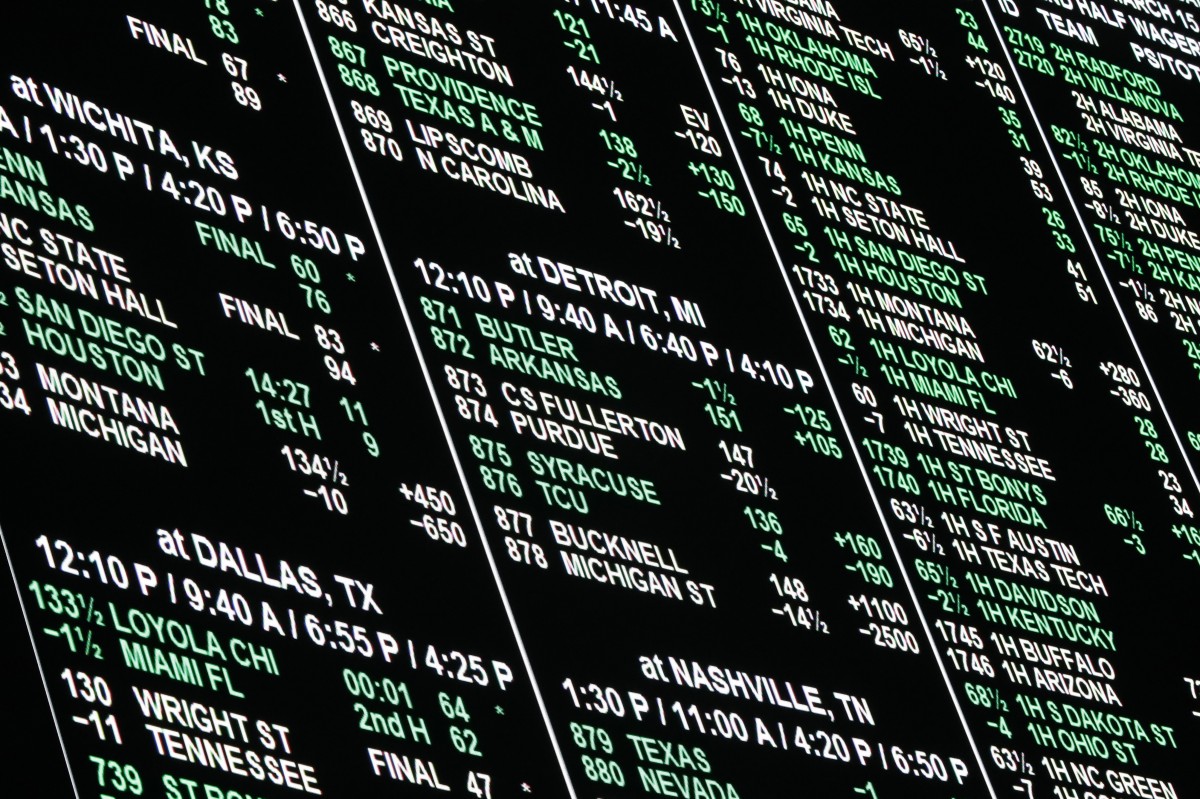CHARLESTON — West Virginia lawmakers asked the interim Lottery commissioner what’s going on with the agency as it considers long-term rules for sports betting.
Doug Buffington, the acting Lottery commissioner, was asked to elaborate on the leadership of the agency, what’s the status of the general counsel and if he understands lawmakers had no intention of imposing a financial arrangement between leagues and casinos.
“There are a lot of rumors floating around. The rumors are still there,” said Senate Finance Chairman Craig Blair, R-Berkeley. “Some of them I know the answers to on what’s going on, and it’s just disturbing the hell out of me right now.”
Buffington was asked to speak before the Joint Senate Finance Committee on Monday morning because of lingering questions over how the executive branch is instituting legislative rules for sports betting at West Virginia’s five casinos.
West Virginia lawmakers have been adamant that they will not allow what are commonly called integrity fees.
Professional sports leagues have asked for regulations to be changed to assure official stats will be used by casinos for in-game betting. The price would be determined with oversight from state Lottery.
“The Legislature clearly chose not to include integrity fees in the authorizing legislation or some of the other provisions you’ve mentioned with the leagues,” said Delegate Paul Espinosa, R-Jefferson.
West Virginia’s Legislature overwhelmingly passed its sports betting law this past legislative session, anticipating a ruling by the U.S. Supreme Court to allow for broadened betting on sports events.
Governor Justice let the bill pass into law without his signature because his family owns The Greenbrier resort, which has a casino. The resort also hosts The Greenbrier Classic PGA event, as well as off-season practices by NFL and NBA teams.
But since then, the administration has been more willing to consider such fees, starting with a a May closed-door meeting of state regulators, representatives of professional sports leagues and casino operators.
“Has the governor’s office directed you to make substantive changes to the rules currently governing sports wagering in West Virginia?” Espinosa asked.
Buffington responded, “No, they have not. We’re not at the point where a decision has been made on any of these things.”
Emergency rules were already filed to allow West Virginia’s casinos to get started as the fall football season kicks off.
Now regulators are working on legislative rules, which would govern sports betting over the long haul.
All that is happening now without the Lottery director or the agency’s general counsel.
Lottery Director Alan Larrick resigned Sept. 1, the day before sports betting made its official debut at Hollywood Casino. No particular reason was given for his resignation or the timing.
Lottery is also without its general counsel, Danielle Boyd, the agency’s most knowledgeable resource on sports betting. Lawmakers have said Boyd has been forced out by the Justice administration.
Boyd has been forced out by the Justice administration.
Lawmakers asked about all that during Buffington’s presentation under oath to the committee.
“I’ve not seen in here the longtime general counsel. It seems like it’s another agency that may be in dysfunction. Can anyone let us know generally what’s going on there?” asked Senator Corey Palumbo, D-Kanawha.
Buffington responded, “I’m not aware of why Mr. Larick stepped down. I was told that he left and I was asked to step in and help.”
Palumbo then asked, “Is Danielle Boyd still at Lottery or is she gone as well?”
Buffington said, “Danielle Boyd still works for the Lottery.”
Blair, the committee co-chairman, then followed up: “Tell us what the employment status is right now of Danielle Boyd.”
Buffington: “She’s still employed by the Lottery.”
Blair: “Is she suspended in any way?”
Buffington: “She is currently an employee. She is not available today and we are looking at concerns.”
Blair then expressed frustration that the top leaders at Lottery who worked with lawmakers on the sports betting bill are not around.
“So the people that could answer the questions aren’t here,” he said. “That bothers me a little bit.”
A comment period has just concluded. Professional sports leagues including Major League Baseball, the National Basketball Association and the PGA Tour have asked for change to the rules regarding bets on real-time aspects of games.
Those, the leagues say, should be determined only by statistics based on official league data.
The data would be available based on what Lottery would determine to be “commercially- reasonable terms.”
Buffington told lawmakers that’s not exactly the same as an integrity fee.
“I’m working diligently to understand the consequences. The comments made really refer to official data, rather than integrity fees,” he said.
Espinosa responded, “I sense no support in the Legislature for requiring that.”
Following the committee hearing, John Cavacini, president of the West Virginia Gaming and Racing Association, said what the pro leagues have proposed is very similar to what the Legislature rejected months ago.
“Most of the issues that are in those comments are ones that we would have a very hard time activating as a part of the sports betting program,” Cavacini said. “So really what we have is a rehash of what we did in January as it relates to the discussions on sports betting.
“It’s nothing new. It’s the same language. It’s a money grab by major league sports.”
Blair said rewriting government rules to make casinos enter contractual agreements with professional sports leagues would send a heavy-handed message to other private businesses considering investment in West Virginia.
He said that message should go “to anybody who’s listening down in the governor’s office.”
Blair elaborated on that point during comments to reporters after the hearing.
“I keep feeling like this is coming out of the Governor’s Office,” Blair said. “And the governor did not sign Senate Bill 415 because of a conflict of interest because he owns The Greenbrier. I get that. I respect that.
“Why would you be so concerned about the other casinos doing this? If it’s a good business model, then do it.”




